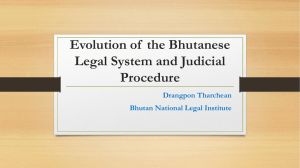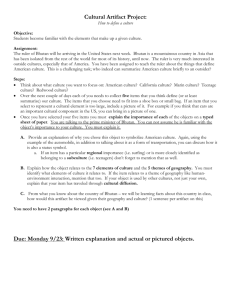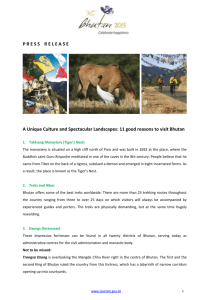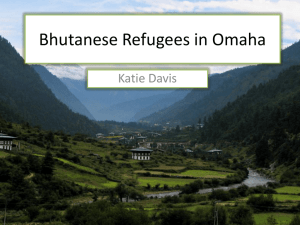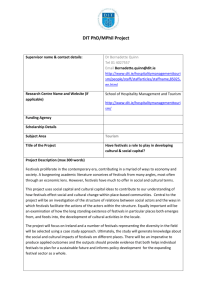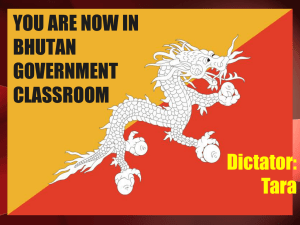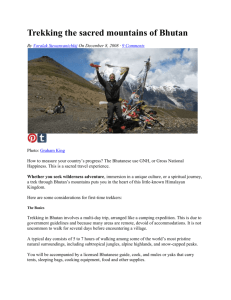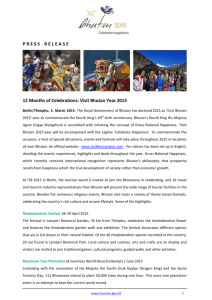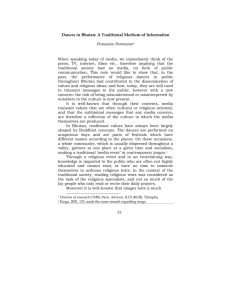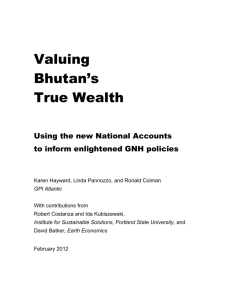Word - mkadvertising.de
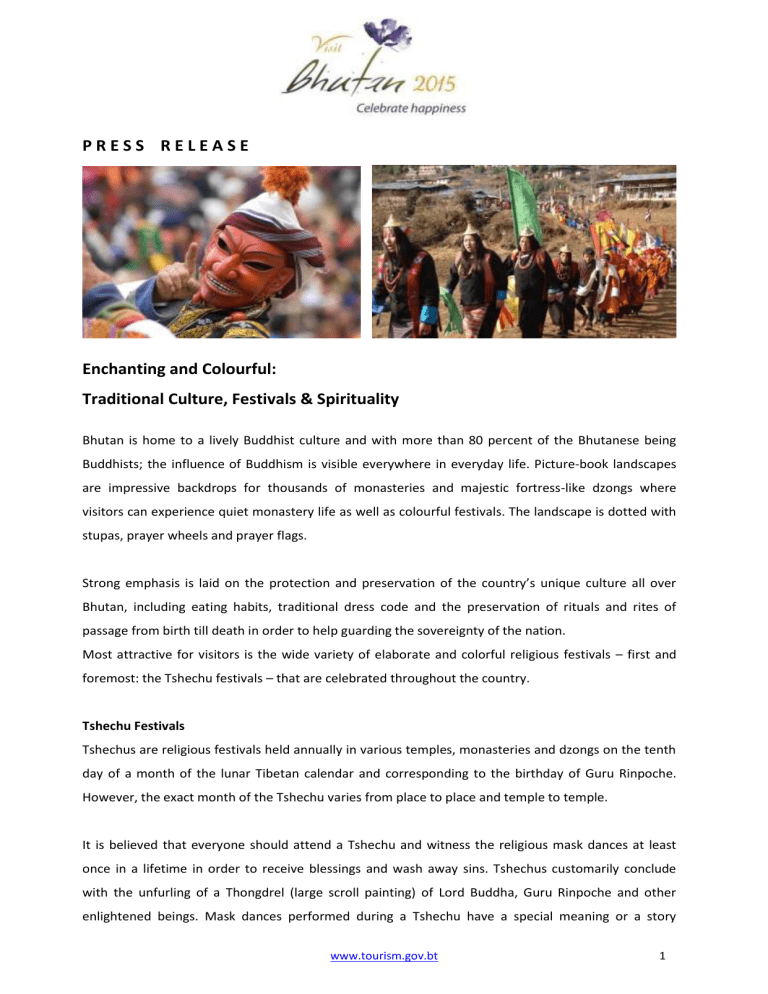
P R E S S R E L E A S E
Enchanting and Colourful:
Traditional Culture, Festivals & Spirituality
Bhutan is home to a lively Buddhist culture and with more than 80 percent of the Bhutanese being
Buddhists; the influence of Buddhism is visible everywhere in everyday life. Picture-book landscapes are impressive backdrops for thousands of monasteries and majestic fortress-like dzongs where visitors can experience quiet monastery life as well as colourful festivals. The landscape is dotted with stupas, prayer wheels and prayer flags.
Strong emphasis is laid on the protection and preservation of the country’s unique culture all over
Bhutan, including eating habits, traditional dress code and the preservation of rituals and rites of passage from birth till death in order to help guarding the sovereignty of the nation.
Most attractive for visitors is the wide variety of elaborate and colorful religious festivals – first and foremost: the Tshechu festivals – that are celebrated throughout the country.
Tshechu Festivals
Tshechus are religious festivals held annually in various temples, monasteries and dzongs on the tenth day of a month of the lunar Tibetan calendar and corresponding to the birthday of Guru Rinpoche.
However, the exact month of the Tshechu varies from place to place and temple to temple.
It is believed that everyone should attend a Tshechu and witness the religious mask dances at least once in a lifetime in order to receive blessings and wash away sins. Tshechus customarily conclude with the unfurling of a Thongdrel (large scroll painting) of Lord Buddha, Guru Rinpoche and other enlightened beings. Mask dances performed during a Tshechu have a special meaning or a story www.tourism.gov.bt
1
behind it and many are based on stories and incidents from as long ago as the 8th century. In monasteries the mask dances are performed by monks and in remote villages they are performed jointly by monks and village people. In addition to the famous mask dances, Tshechus also include colorful Bhutanese dances and other forms of entertainment.
Apart from worship, the festivals also serve as a time for social bonding among people of remote and spread-out villages. They are large social gatherings where entire communities come together to witness the dances, receive blessings and socialize. Celebrations are lively, high-spirited affairs during which people share meals of red rice, spicy pork, the national dish Ema Datshi and Momos (pork dumplings) whilst drinking the traditional rice wine known as Ara. Large markets congregate at the festival locations, leading to brisk commerce.
Two of the most popular Tshechus in the country are the Paro and Thimphu Tshechus in terms of participation and audience. Besides the locals many tourists from across the world are drawn to these unique, colorful and exciting displays of traditional culture and are always welcomed with unique hospitality.
Spirituality
Bhutan has many activities available for those visitors seeking a place of peace, rest and recuperation.
Whether it is a session of contemplative meditation, a relaxing soak in a mineral hot spring bath or the natural remedies of traditional medicine, Bhutan has what visitors need to revive and rejuvenate body and spirit. Additionally, most hotels also provide yoga sessions, retreats and meditation facilities within the hotel premises.
Downloads: Photos |Press Text
Bhutan – Media Center: www.mkadvertising.de/Bhutan
Photo credit: Tourism Council of Bhutan
Press Information | Contact:
mk Advertising . Travel . Public Relations
Monika Blachian | Managing Director
Hiltenspergerstr. 20 | 80798 Munich
T +49-89-590 439 04 | F +49-89-516 568 94 blachian@mkadvertising.de www.mkadvertising.de
Tourism Council of Bhutan
Thinley Wangdi | Marketing Officer
P.O. Box 126 | Thimpu | Bhutan
T +975-2-3232 51/52 | F +975-2-323695 twangdi@tourism.gov.bt www.tourism.gov.bt
www.tourism.gov.bt
2
